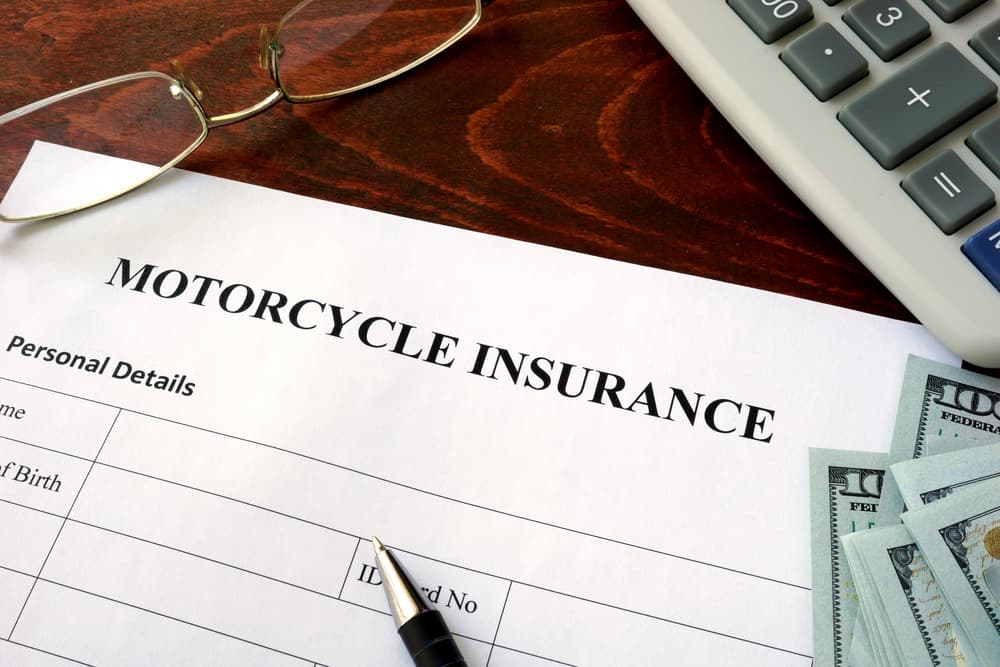While national estimates suggest an average motorcycle accident settlement might range between $70,000 and $100,000, this is just a starting point. There is no single average payout for motorcycle accidents, as several factors can change the value of a motorcycle accident.
In this blog post, we’ll take a closer look at the average payout for a motorcycle accident and the factors that impact settlement amounts. Reach out a Austin motorcycle accident attorney for further legal assistance in our case.
Understanding the Complexity of “Average” Payouts

Motorcycle accidents, unfortunately, are not uncommon on the roads of Austin. The thrill of riding on two wheels comes with risks, primarily because motorcycles are less visible to other drivers and offer less protection during a collision.
When accidents occur, the physical and financial aftermath can be overwhelming for the victims and their families. At DJC Law, we understand the complexities involved in motorcycle accident claims and strive to secure the compensation our clients deserve for medical bills, lost income, and other damages.
But it’s important to start by clarifying that we don’t use one-size-fits-all answers when we calculate payouts for motorcycle accidents. Each case is unique, with a multitude of factors influencing the final settlement amount or court award.
Factors that Influence Motorcycle Accident Settlements
While no amount of money can truly compensate for the physical and emotional toll of an accident, understanding average payouts can help you navigate the legal process and ensure you receive fair compensation. Here are some important factors that can impact motorcycle accident settlement amounts.
Severity of Injuries

The severity of injuries sustained in a motorcycle accident significantly influences the value of settlements. This is because more serious injuries typically require extensive medical treatment and prolonged recovery periods and may lead to long-term or permanent disabilities.
For instance, injuries such as traumatic brain injuries (TBIs), spinal cord injuries, fractures, or severe road rash not only necessitate immediate medical attention but often involve surgeries, rehabilitation, and ongoing care. These medical expenses can accumulate quickly, escalating the financial burden on the victim and their family.
Moreover, severe injuries can impact a victim’s ability to return to work, either temporarily or permanently, affecting their earning capacity. This loss of income, coupled with the potential need for future medical treatments and adjustments to living conditions to accommodate disabilities, contributes to the overall compensation claim.
Additionally, the physical pain and emotional suffering associated with severe injuries are quantified in the settlement, acknowledging the non-economic damages that the victim endures. These are often referred to as pain and suffering damages.
Pain and Suffering
Pain and suffering encompasses the non-economic damages a victim endures as a result of a motorcycle accident, including physical pain, emotional distress, loss of enjoyment of life, and the psychological impact of the injuries and trauma.
Unlike economic damages, which are tangible and can be quantified through bills and lost wages, pain and suffering are subjective and vary greatly from one individual to another.
The value assigned to pain and suffering in a settlement is influenced by the severity and permanence of the injuries, the extent of the physical pain, and the emotional and psychological toll on the victim.
For example, severe injuries that lead to chronic pain, significant lifestyle changes, or long-term psychological conditions such as PTSD, anxiety, or depression typically result in higher compensation for pain and suffering.
Determining the compensation for pain and suffering requires a nuanced approach, often involving legal and medical experts to articulate the extent of the victim’s suffering and its impact on their life. Factors such as the victim’s age, the nature of their recovery, and how their injuries have altered their daily activities, relationships, and overall quality of life are considered.
Lawyers may use various methods to calculate these damages, including multipliers of the economic damages or per diem approaches, but ultimately, the goal is to arrive at a figure that fairly compensates the victim for the intangible, yet profound, impacts of their injuries.
This compensation acknowledges that the consequences of a motorcycle accident extend beyond financial losses, addressing the profound personal and emotional challenges victims face.
Loss of Income
Loss of Income is a critical factor, addressing the financial impact of the victim’s inability to work and earn income or wages as a result of their injuries. This aspect of compensation is particularly important for those whose injuries necessitate a significant period away from their job or those who are unable to return to their previous employment at all.
The calculation of lost income includes not only the wages or salary the victim would have earned had the accident not occurred but also other benefits and earnings they miss out on, such as bonuses, commissions, and contributions to retirement savings.
For individuals suffering from long-term or permanent disabilities as a result of the accident, the concept of loss of future earning capacity becomes relevant. This estimates the income the victim will likely lose over their lifetime due to the accident-induced limitations.
Determining this loss involves considering the victim’s age, career trajectory, skills, and the potential for future promotions and raises that are no longer attainable. Accurately quantifying loss of income and future earning capacity is complex, requiring expert testimony and detailed economic analysis.
Still, ensuring that the settlement reflects the full extent of the economic damages the victim has suffered is essential. This compensation is vital for providing financial stability and support to individuals as they navigate their recovery and adapt to their post-accident life.
Property Damage
Property damage also plays a significant role in calculating the value of motorcycle accident settlements, as it encompasses the costs associated with repairing or replacing the motorcycle and any other property the accident damaged. This factor is straightforward in its assessment, involving the direct financial impact of the damage to the victim’s possessions.
The value of the property damage is determined by the market value of the motorcycle at the time of the accident, alongside any other items that were damaged, such as helmets, riding gear, or personal belongings that were involved in the crash.
The extent of property damage can vary from one case to another, influencing the overall settlement amount. Minor accidents may only cause cosmetic issues or minor repairs, resulting in lower compensation amounts. However, in more severe accidents, the insurance company may total the motorcycle, and the cost to replace high-value or custom bikes can cost thousands.
The calculation of property damage is typically more clear-cut than other damages, such as pain and suffering. However, it still contributes meaningfully to the total settlement value, ensuring victims are compensated for the tangible losses they’ve incurred.
Degree of Fault
In Texas, your degree of fault in an accident plays a pivotal role in determining the outcome and value of motorcycle accident settlements due to the state’s adherence to the modified comparative negligence rule. This legal principle asserts that the compensation a victim can receive is based on their own percentage of fault in causing the accident.
Essentially, if a motorcycle accident victim is found to be partially responsible for the incident, the compensation they are eligible to receive for their damages will be reduced by their percentage of fault. For example, if a victim is determined to be 20% at fault for the accident, the total compensation awarded to them would decrease by 20%.
Crucially, Texas law stipulates a 51% bar rule, meaning if a victim is found to be 51% or more at fault for the accident, they cannot receive any compensation from the other involved parties.
This approach underscores the importance of thorough investigation and evidence gathering in motorcycle accident claims to accurately establish fault. It also highlights the necessity for skilled legal representation to navigate the complexities of fault determination and to advocate effectively for the victim’s rights.
Insurance coverage

Texas is an at-fault state for car accidents, including motorcycle collisions. This means that the party found to be responsible for the accident is liable for covering the damages incurred by the other party.
All motorists, including motorcyclists, must carry a minimum of liability insurance to prove financial responsibility for any accidents they may cause. This system places a significant emphasis on the insurance coverage of all parties involved.
The value of a motorcycle accident settlement can be heavily influenced by the at-fault party’s insurance policy limits. If the at-fault driver has substantial liability coverage, there may be a higher potential for securing a settlement that fully covers the victim’s medical expenses, lost wages, pain and suffering, and other damages.
Conversely, if the at-fault party’s insurance coverage is minimal or insufficient to cover the damages, the victim may face challenges in obtaining full compensation, potentially leading to settlements that are lower than the actual losses incurred.
Additionally, the victim’s own insurance coverage can come into play, especially if they have underinsured or uninsured motorist coverage. This type of coverage is designed to protect the victim in cases where the at-fault party lacks adequate insurance to cover the full extent of damages, or if the at-fault party is unidentified, as in a hit-and-run scenario.
So, What’s the Average Motorcycle Settlement?
Given the variability in cases, providing a concrete average payout figure can be misleading. However, settlements can range from thousands to millions of dollars, depending on the factors mentioned above.
For minor injuries with little to no time off work, the payout might be on the lower end. Conversely, severe injuries resulting in significant loss of income and quality of life can lead to settlements or awards in the higher range.
Why You Need an Experienced Personal Injury Lawyer
Navigating a motorcycle accident claim can be daunting, especially when dealing with insurance companies that aim to minimize payouts. This is where DJC Law steps in.
Our experienced personal injury lawyers are adept at handling motorcycle accident claims. We work tirelessly to gather evidence, establish fault, and negotiate with insurance companies to ensure our clients receive the maximum compensation they deserve.
Contact a Motorcycle Accident Lawyer You Can Trust
While it’s challenging to pinpoint an average payout for motorcycle accidents due to the varied nature of these incidents, understanding the factors that impact compensation can provide some insight into what you might expect from your claim.
At DJC Law, we are committed to offering personalized legal guidance and support to motorcycle accident victims, ensuring they navigate the claims process with confidence and secure the compensation they need to recover and rebuild.

If you or a loved one has been involved in a motorcycle accident in Austin, contact personal injury lawyer DJC Law today for a free consultation. Let us help you on your journey to justice and recovery. Contact us today at (512) 888-9999 or through our online form for your free consultation and to discuss your options for financial recovery.


